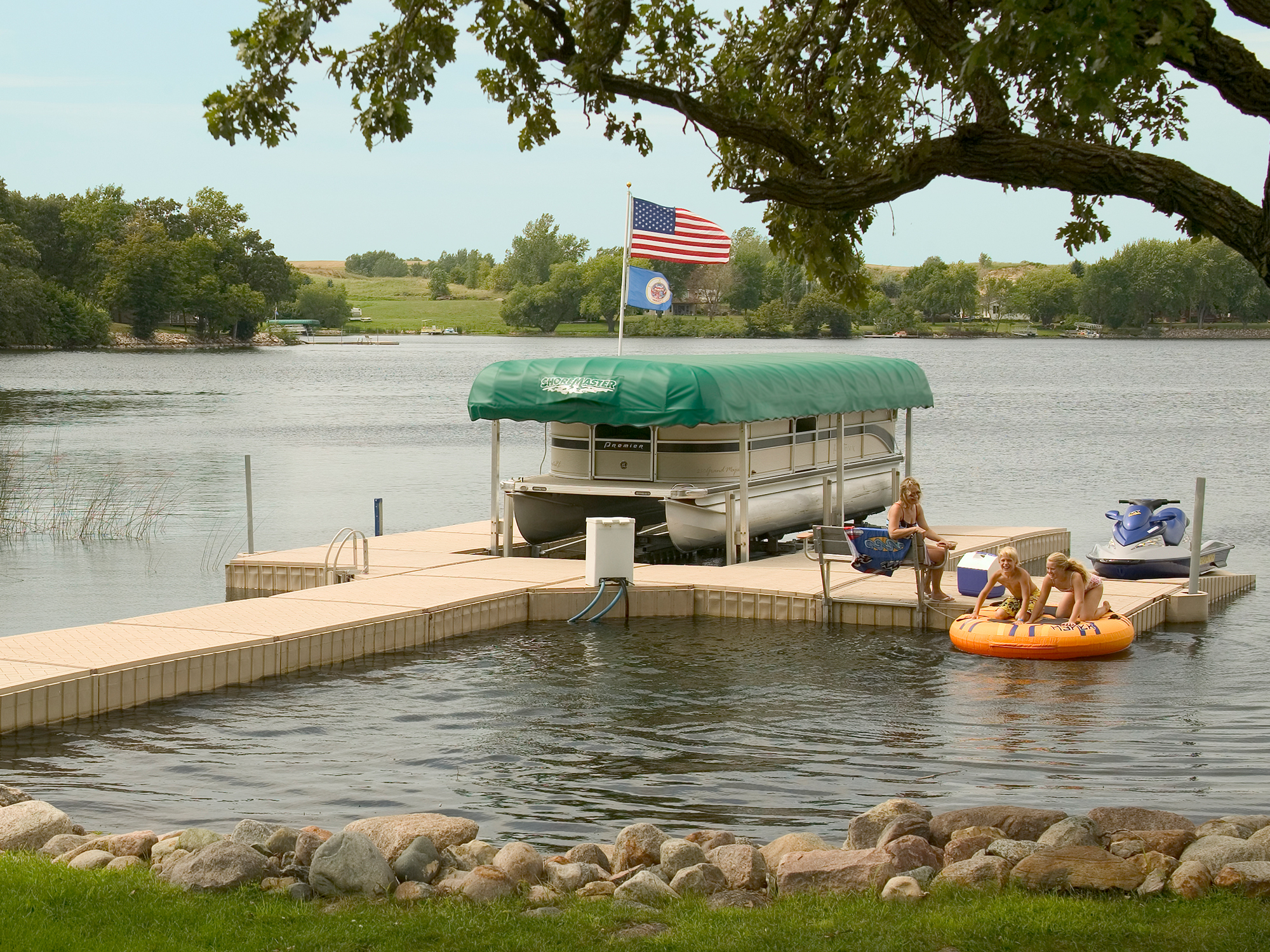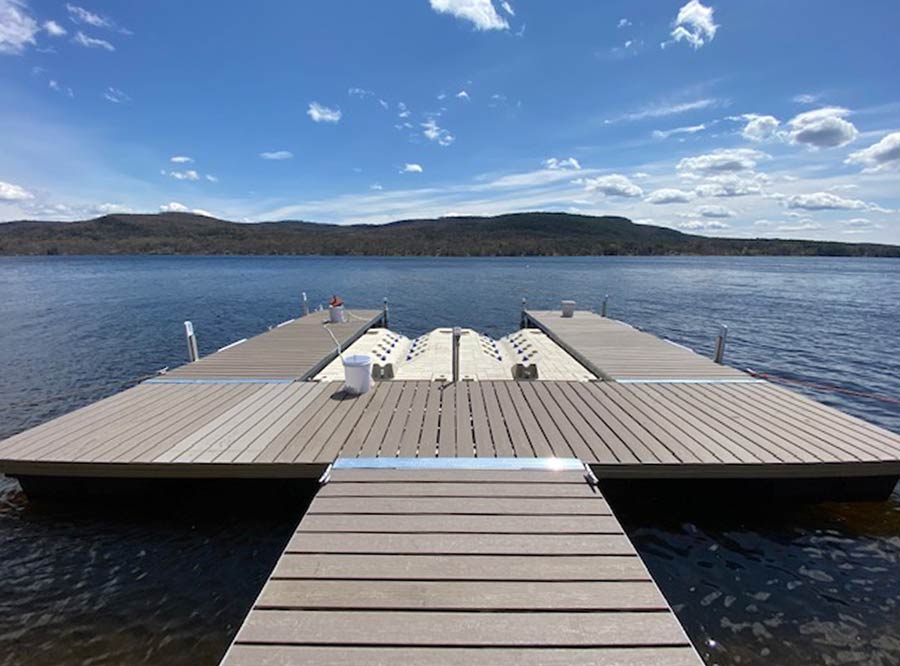Your Guide to Finding the very best Dock Company for High Quality and Integrity
Your Guide to Finding the very best Dock Company for High Quality and Integrity
Blog Article
Floating Docks: The Ideal Option for Versatile Water Accessibility
Floating docks present an engaging option for a range of water access requires, offering convenience that transcends typical mooring options. The modular nature of floating docks assists in customization, providing to particular requirements.
Benefits of Floating Docks
Floating docks deal countless advantages that boost water accessibility for various applications. Their ability to fall and rise with altering water degrees makes them especially beneficial in environments with changing trends or seasonal variants. This adaptability makes certain that vessels can conveniently tie without worry for the water's depth, giving a trustworthy platform for recreational, commercial, and industrial usages.
In addition, floating docks are frequently constructed from sturdy materials that withstand deterioration, making them appropriate for lasting use in aquatic atmospheres. Their setup is usually much less intrusive than standard fixed docks, reducing the ecological influence and helping with quicker release (dock company). This flexibility enables simpler relocation or reconfiguration according to individual requirements or ecological adjustments
Security is one more crucial advantage; floating docks can give secure accessibility for people boarding or getting off from watercrafts and minimize the risk of accidents related to unstable surface areas. They can be developed to accommodate a variety of devices, such as cleats and fenders, enhancing capability. On the whole, floating docks stand for an efficient option for enhancing water gain access to across varied markets while promoting safety and security and ecological sustainability.

Sorts Of Floating Docks
Different kinds of floating docks accommodate different requirements and environments, each developed with details functions to optimize performance. One of the most common types consist of modular docks, which include interlacing areas that enable very easy customization and growth. These docks are perfect for leisure use, as they can be customized to fit various watercraft sizes and water conditions.
One more preferred choice is the fixed floating dock, which remains anchored in position yet floats with changing water degrees. floating docks. This type is especially fit for locations with marginal tidal variations, providing steady access for angling or swimming. Additionally, there are drive-on docks, which include a sloped style that enables watercrafts to easily drive on and off, making them ideal for personal watercraft and smaller sized vessels
For business applications, heavy-duty floating docks are readily available, constructed from reinforced products to stand up to considerable tons and rough aquatic atmospheres. Eco-friendly floating docks use sustainable materials and styles to decrease environmental influence, typically including functions like plant life to support neighborhood wild animals. Understanding the numerous kinds of floating docks guarantees that individuals can pick one of the most proper option for their specific demands.
Installment Process Introduction
A successful installment of floating docks needs careful planning and attention to information to ensure ideal efficiency and safety. The first action includes analyzing the site problems, consisting of water deepness, existing, and potential challenges. This analysis informs the option of the appropriate dock products and design customized to the specific setting.
Next, acquiring required permits is important, as many jurisdictions have regulations pertaining to building and construction on water bodies. Once consents are protected, the installment can continue. Begin by preparing the foundation, which might include anchoring systems or pilings tailored to the dock kind and local conditions.
Adhering to the structure configuration, put together the dock sections according to producer specifications. Make certain that all elements are securely attached and straightened to endure ecological anxieties. Setting the dock in the designated location, ensuring it is degree and stable.

Maintenance Tips and Best Practices
After the setup procedure is full, recurring upkeep plays an essential function in making sure the durability and performance of floating docks. Normal assessments must be performed to determine any signs of damage, wear, or damage - floating dock builder. Look for any type of loosened fittings, splits, or splitting up in the dock areas, as these can compromise architectural stability
Cleaning the dock is necessary to eliminate debris, algae, and other build-up that can affect its appearance and safety and security. Make use of a gentle stress wash occasionally to maintain cleanliness without causing damage to the surface area. Furthermore, using More hints a protective sealant every couple of years can help boost long life and resist ecological wear.
Take notice of the mooring lines and supports, ensuring they are cost-free and protected from corrosion. Replace any kind of degraded elements promptly to prevent dangers. Seasonal changes may additionally be necessary; throughout severe climate conditions, repositioning or strengthening the dock can stop damage.
Applications for Floating Docks
Floating docks serve a multitude of applications, providing to both business and leisure needs. In entertainment setups, they supply smooth access to waterways for visit our website activities such as boating, angling, and swimming. Their flexible nature enables setup in differing water degrees, ensuring safe and secure accessibility no matter tidal fluctuations.
Readily, floating docks are essential for marinas and beachfront organizations. They assist in the docking of vessels, enabling efficient filling and dumping of goods. Their modular design enables very easy expansion or reconfiguration to fit changing company demands, making them suitable for boat rentals, excursion operations, or angling charters.
Additionally, floating docks are made use of in ecological applications such as water research and environment reconstruction. They can function as systems for clinical studies, monitoring water quality, or carrying out wildlife surveys without disturbing delicate ecological communities.
In commercial contexts, floating docks are utilized in building tasks, offering accessibility to hard-to-reach locations for devices and workers. Their adaptability, sturdiness, and minimal effect on the setting make them an optimal selection for a wide variety of applications, boosting both capability and availability in numerous water-based environments.
Final Thought
To conclude, floating docks represent an optimum remedy for diverse water access needs, owing to their adaptability, durability, and modular style. These structures facilitate safe mooring for numerous applications while reducing environmental effect during installment. The decreased maintenance demands even more enhance their usefulness. Thus, floating docks function as a useful possession for recreational, industrial, and ecological jobs, ensuring trustworthy access to rivers and advertising sustainable techniques in aquatic environments.
Floating docks present a compelling service for a variety of water gain access to needs, offering flexibility that transcends standard mooring options.Floating docks offer many benefits that improve water accessibility for numerous applications. On the whole, floating docks represent a reliable remedy for improving water accessibility across varied markets while promoting security and environmental sustainability.
Another preferred choice is the stationary floating dock, which stays anchored in area yet floats with transforming water levels.In verdict, floating docks stand for an optimum remedy for diverse water gain access to requires, owing to their adaptability, durability, see it here and modular design.
Report this page